Abstract:
In this article, a new modulation method based on space-vector modulation for Z-source inverters is proposed. One modulation method named ZSVM6 is attractive for the use ...Show MoreMetadata
Abstract:
In this article, a new modulation method based on space-vector modulation for Z-source inverters is proposed. One modulation method named ZSVM6 is attractive for the use of SiC-mosfets since it can avoid the body-diode conduction. The proposed modulation is based on ZSVM6 and can reduce the current ripple in the inductor in its impedance source by introducing additional shoot-through intervals to divide the longest active state. The proposed modulation can reduce the current ripple by 44.5% in comparison with that by the conventional ZSVM6 under the same switching frequency. Conversely, the inductance required to achieve the same current ripple can be reduced by the same ratio. The reduction of the inductor volume through the proposed modulation was confirmed experimentally using a prototype of quasi-Z-source inverter and fabricated inductors. The experimental results also confirmed that the inductor size reduction can be achieved without increase in the total power loss of the converter. A harmonics analysis based on the experiments showed that the harmonic components in the current can be increased through the proposed modulation. However, the frequency range of the increased components can be much higher than the control frequency; therefore, its influence on the design of passive components is not severe.
Published in: IEEE Transactions on Power Electronics ( Volume: 37, Issue: 3, March 2022)
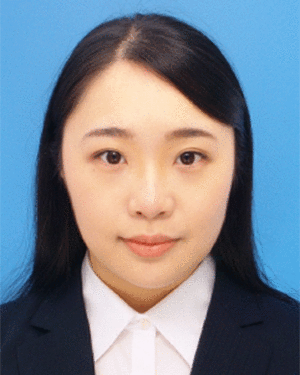
Graduate School of Pure and Applied Sciences, University of Tsukuba, Ibraki, Japan
Mengyu Li was born in Nanjing, China, in 1996. She received the B.Eng. degree in engineering sciences and the M.Eng. degree in applied physics from the University of Tsukuba, Ibaraki, Japan, in 2019 and 2021, respectively.
Since April 2021, she has been with Corporate R\& D Headquarters of Fuji Electric Co., Ltd, Tokyo, Japan. Her research interests include applied design of power conversion systems and control systems f...Show More
Mengyu Li was born in Nanjing, China, in 1996. She received the B.Eng. degree in engineering sciences and the M.Eng. degree in applied physics from the University of Tsukuba, Ibaraki, Japan, in 2019 and 2021, respectively.
Since April 2021, she has been with Corporate R\& D Headquarters of Fuji Electric Co., Ltd, Tokyo, Japan. Her research interests include applied design of power conversion systems and control systems f...View more
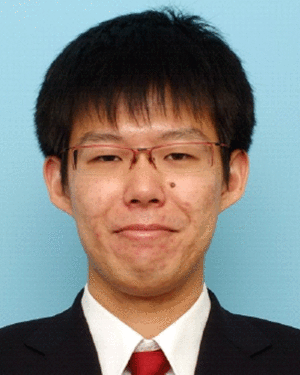
Graduate School of Pure and Applied Sciences, University of Tsukuba, Ibraki, Japan
Ryuji Iijima (Member, IEEE) was born in Ibaraki, Japan, in 1992. He received the B.Eng. degree in systems engineering from the National Institute of Technology, Ibaraki College, Ibaraki, Japan, in 2014, the M.Eng. and Ph.D. degrees in applied physics from the University of Tsukuba, Ibaraki, Japan, in 2016 and 2019, respectively.
Since 2019, he has been with Aeronautical Technology Directorate of Japan Aerospace Exploration...Show More
Ryuji Iijima (Member, IEEE) was born in Ibaraki, Japan, in 1992. He received the B.Eng. degree in systems engineering from the National Institute of Technology, Ibaraki College, Ibaraki, Japan, in 2014, the M.Eng. and Ph.D. degrees in applied physics from the University of Tsukuba, Ibaraki, Japan, in 2016 and 2019, respectively.
Since 2019, he has been with Aeronautical Technology Directorate of Japan Aerospace Exploration...View more
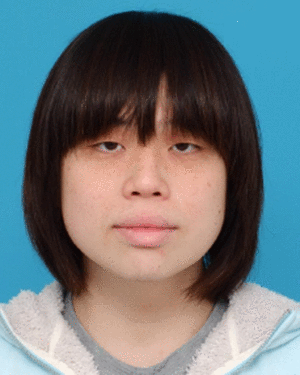
Faculty of Pure and Applied Sciences, University of Tsukuba, Ibaraki, Japan
Tomoyuki Mannen (Member, IEEE) received the B.S. and M.S. degrees and the Ph.D. Eng. degree from the Tokyo Institute of Technology, Tokyo, Japan, in 2012, 2014, and 2017, respectively, all in electrical engineering.
He joined Tokyo Metropolitan University, Tokyo, Japan, as a Postdoctoral Researcher, in 2017, and moved to the Tokyo University of Science, Tokyo, Japan, in 2018, as an Assistant Professor. Since 2019, he has b...Show More
Tomoyuki Mannen (Member, IEEE) received the B.S. and M.S. degrees and the Ph.D. Eng. degree from the Tokyo Institute of Technology, Tokyo, Japan, in 2012, 2014, and 2017, respectively, all in electrical engineering.
He joined Tokyo Metropolitan University, Tokyo, Japan, as a Postdoctoral Researcher, in 2017, and moved to the Tokyo University of Science, Tokyo, Japan, in 2018, as an Assistant Professor. Since 2019, he has b...View more
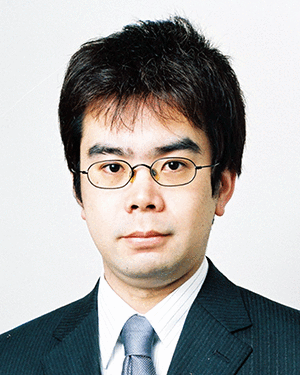
Faculty of Pure and Applied Sciences, University of Tsukuba, Ibaraki, Japan
Takanori Isobe (Member, IEEE) was born in Hamamatsu, Japan, in 1978. He received the B.Eng. degree in physical electronics, the M.Eng. degree in nuclear engineering, and the Dr. Eng. degree in energy sciences all from the Tokyo Institute of Technology, Tokyo, Japan, in 2003, 2005, and 2008, respectively.
From 2008 to 2010 and from 2012 to 2013, he was a Researcher with the Tokyo Institute of Technology, where he was an Ass...Show More
Takanori Isobe (Member, IEEE) was born in Hamamatsu, Japan, in 1978. He received the B.Eng. degree in physical electronics, the M.Eng. degree in nuclear engineering, and the Dr. Eng. degree in energy sciences all from the Tokyo Institute of Technology, Tokyo, Japan, in 2003, 2005, and 2008, respectively.
From 2008 to 2010 and from 2012 to 2013, he was a Researcher with the Tokyo Institute of Technology, where he was an Ass...View more
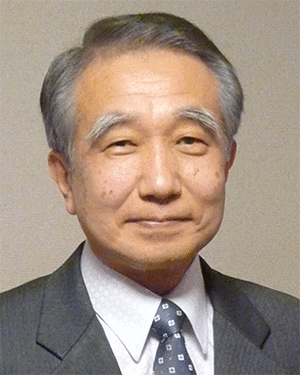
Faculty of Pure and Applied Sciences, University of Tsukuba, Ibaraki, Japan
Hiroshi Tadano (Member, IEEE) received the Ph.D. degree in semiconductor technology from Tohoku University, Sendai, Japan, in 1980.
In 1980, he joined Toyota Central R\& D Labs, Inc., where he was involved in the research and development of power devices such as SIT, IGBT, diodes, and power mosfets. From 2013 to 2018, he was a Professor with the Graduate School of Pure and Applied Science, University of Tsukuba, Ibaraki,...Show More
Hiroshi Tadano (Member, IEEE) received the Ph.D. degree in semiconductor technology from Tohoku University, Sendai, Japan, in 1980.
In 1980, he joined Toyota Central R\& D Labs, Inc., where he was involved in the research and development of power devices such as SIT, IGBT, diodes, and power mosfets. From 2013 to 2018, he was a Professor with the Graduate School of Pure and Applied Science, University of Tsukuba, Ibaraki,...View more

Graduate School of Pure and Applied Sciences, University of Tsukuba, Ibraki, Japan
Mengyu Li was born in Nanjing, China, in 1996. She received the B.Eng. degree in engineering sciences and the M.Eng. degree in applied physics from the University of Tsukuba, Ibaraki, Japan, in 2019 and 2021, respectively.
Since April 2021, she has been with Corporate R\& D Headquarters of Fuji Electric Co., Ltd, Tokyo, Japan. Her research interests include applied design of power conversion systems and control systems for electric vehicle drive systems, and implementation of wide bandgap power semiconductors.
Ms. Li is a member of the Institute of Electrical Engineers of Japan.
Mengyu Li was born in Nanjing, China, in 1996. She received the B.Eng. degree in engineering sciences and the M.Eng. degree in applied physics from the University of Tsukuba, Ibaraki, Japan, in 2019 and 2021, respectively.
Since April 2021, she has been with Corporate R\& D Headquarters of Fuji Electric Co., Ltd, Tokyo, Japan. Her research interests include applied design of power conversion systems and control systems for electric vehicle drive systems, and implementation of wide bandgap power semiconductors.
Ms. Li is a member of the Institute of Electrical Engineers of Japan.View more

Graduate School of Pure and Applied Sciences, University of Tsukuba, Ibraki, Japan
Ryuji Iijima (Member, IEEE) was born in Ibaraki, Japan, in 1992. He received the B.Eng. degree in systems engineering from the National Institute of Technology, Ibaraki College, Ibaraki, Japan, in 2014, the M.Eng. and Ph.D. degrees in applied physics from the University of Tsukuba, Ibaraki, Japan, in 2016 and 2019, respectively.
Since 2019, he has been with Aeronautical Technology Directorate of Japan Aerospace Exploration Agency, Tokyo, Japan, as a Researcher. His current interests include high power density power conversion system for propulsion system of electric aircraft.
Dr. Iijima is a member of the Institute of Electrical Engineers of Japan.
Ryuji Iijima (Member, IEEE) was born in Ibaraki, Japan, in 1992. He received the B.Eng. degree in systems engineering from the National Institute of Technology, Ibaraki College, Ibaraki, Japan, in 2014, the M.Eng. and Ph.D. degrees in applied physics from the University of Tsukuba, Ibaraki, Japan, in 2016 and 2019, respectively.
Since 2019, he has been with Aeronautical Technology Directorate of Japan Aerospace Exploration Agency, Tokyo, Japan, as a Researcher. His current interests include high power density power conversion system for propulsion system of electric aircraft.
Dr. Iijima is a member of the Institute of Electrical Engineers of Japan.View more

Faculty of Pure and Applied Sciences, University of Tsukuba, Ibaraki, Japan
Tomoyuki Mannen (Member, IEEE) received the B.S. and M.S. degrees and the Ph.D. Eng. degree from the Tokyo Institute of Technology, Tokyo, Japan, in 2012, 2014, and 2017, respectively, all in electrical engineering.
He joined Tokyo Metropolitan University, Tokyo, Japan, as a Postdoctoral Researcher, in 2017, and moved to the Tokyo University of Science, Tokyo, Japan, in 2018, as an Assistant Professor. Since 2019, he has been an Assistant Professor with the Department of Applied Physics, University of Tsukuba, Ibaraki, Japan. His research interests include grid-connection converters, especially in current unfolding strategies, active power filters, and its control methods, and optimum switching behavior and extremely overload operation in power devices.
Dr. Mannen was the recipient of the Institute of Electrical Engineers of Japan Industry Application Society Conference Paper Presentation Award, in 2013, 2017, and 2019, the IEEJ Technical Meeting Presentation Award, in 2015, and Committee Prize Paper Awards from the IEEE Industry Applications Society Industrial Power Converter Committee, in 2016 and 2019.
Tomoyuki Mannen (Member, IEEE) received the B.S. and M.S. degrees and the Ph.D. Eng. degree from the Tokyo Institute of Technology, Tokyo, Japan, in 2012, 2014, and 2017, respectively, all in electrical engineering.
He joined Tokyo Metropolitan University, Tokyo, Japan, as a Postdoctoral Researcher, in 2017, and moved to the Tokyo University of Science, Tokyo, Japan, in 2018, as an Assistant Professor. Since 2019, he has been an Assistant Professor with the Department of Applied Physics, University of Tsukuba, Ibaraki, Japan. His research interests include grid-connection converters, especially in current unfolding strategies, active power filters, and its control methods, and optimum switching behavior and extremely overload operation in power devices.
Dr. Mannen was the recipient of the Institute of Electrical Engineers of Japan Industry Application Society Conference Paper Presentation Award, in 2013, 2017, and 2019, the IEEJ Technical Meeting Presentation Award, in 2015, and Committee Prize Paper Awards from the IEEE Industry Applications Society Industrial Power Converter Committee, in 2016 and 2019.View more

Faculty of Pure and Applied Sciences, University of Tsukuba, Ibaraki, Japan
Takanori Isobe (Member, IEEE) was born in Hamamatsu, Japan, in 1978. He received the B.Eng. degree in physical electronics, the M.Eng. degree in nuclear engineering, and the Dr. Eng. degree in energy sciences all from the Tokyo Institute of Technology, Tokyo, Japan, in 2003, 2005, and 2008, respectively.
From 2008 to 2010 and from 2012 to 2013, he was a Researcher with the Tokyo Institute of Technology, where he was an Assistant Professor from 2010 to 2012. From 2013 to 2014, he was with MERSTech, Tokyo, Japan. In 2013, he joined the University of Tsukuba, Ibaraki, Japan, where he is currently an Associate Professor with the Faculty of Pure and Applied Sciences. His research interests include static reactive power compensators and soft-switching power converters.
Takanori Isobe (Member, IEEE) was born in Hamamatsu, Japan, in 1978. He received the B.Eng. degree in physical electronics, the M.Eng. degree in nuclear engineering, and the Dr. Eng. degree in energy sciences all from the Tokyo Institute of Technology, Tokyo, Japan, in 2003, 2005, and 2008, respectively.
From 2008 to 2010 and from 2012 to 2013, he was a Researcher with the Tokyo Institute of Technology, where he was an Assistant Professor from 2010 to 2012. From 2013 to 2014, he was with MERSTech, Tokyo, Japan. In 2013, he joined the University of Tsukuba, Ibaraki, Japan, where he is currently an Associate Professor with the Faculty of Pure and Applied Sciences. His research interests include static reactive power compensators and soft-switching power converters.View more

Faculty of Pure and Applied Sciences, University of Tsukuba, Ibaraki, Japan
Hiroshi Tadano (Member, IEEE) received the Ph.D. degree in semiconductor technology from Tohoku University, Sendai, Japan, in 1980.
In 1980, he joined Toyota Central R\& D Labs, Inc., where he was involved in the research and development of power devices such as SIT, IGBT, diodes, and power mosfets. From 2013 to 2018, he was a Professor with the Graduate School of Pure and Applied Science, University of Tsukuba, Ibaraki, Japan, where he has been a Visiting Professor. His research interests include high efficiency power conversion circuits for electric vehicles using advanced power devices.
He is a member of the Institute of Electrical Engineering of Japan, the Institute of Electronics, Information and Communication Engineers, and the Japan Institute of Power Electronics.
Hiroshi Tadano (Member, IEEE) received the Ph.D. degree in semiconductor technology from Tohoku University, Sendai, Japan, in 1980.
In 1980, he joined Toyota Central R\& D Labs, Inc., where he was involved in the research and development of power devices such as SIT, IGBT, diodes, and power mosfets. From 2013 to 2018, he was a Professor with the Graduate School of Pure and Applied Science, University of Tsukuba, Ibaraki, Japan, where he has been a Visiting Professor. His research interests include high efficiency power conversion circuits for electric vehicles using advanced power devices.
He is a member of the Institute of Electrical Engineering of Japan, the Institute of Electronics, Information and Communication Engineers, and the Japan Institute of Power Electronics.View more

